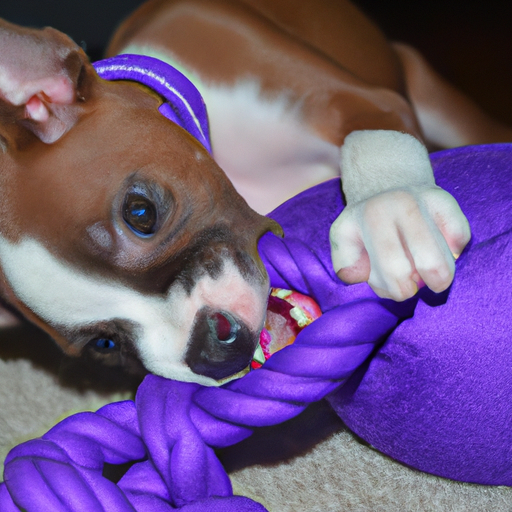As a caregiver, one common question that you might have is, “When do puppies start teething?” Let’s dive into the topic and learn more about your puppy’s teething process.
Understanding the Puppy Teething Timeline
Just like human babies, puppies also go through a teething process. The process starts when they are about two to four weeks old. During this period, their baby teeth or ‘milk teeth’ start to erupt.
Here’s a general timeline for your reference:
| Age | Teething Stage |
|---|---|
| 2-4 weeks | Baby teeth start to come in |
| 3-4 months | Baby teeth start to fall out |
| 4-6 months | Permanent teeth start to come in |
| 6-7 months | Most permanent teeth are in |
Remember, this is a general timeline and may vary slightly for individual puppies.
Recognizing the Signs of Puppy Teething
Your puppy can’t tell you they’re teething, so you’ll need to look out for the signs. Here’s what to watch for:
- Excessive chewing
- Drooling
- Irritability
- Loss of appetite
- Red, swollen gums
How to Help Your Teething Puppy
You can help your puppy get through this uncomfortable process. Here are some tips:
- Provide chew toys: Chew toys can help alleviate the discomfort. Make sure to choose ones that are safe for puppies.
- Use cold items: A chilled chew toy or a frozen carrot can provide relief.
- Maintain oral hygiene: Regular brushing can keep your puppy’s mouth healthy.
What Not to Do
During this period, avoid these actions:
- Don’t scold your puppy for chewing. It’s a natural behavior during teething.
- Don’t ignore any signs of infection or severe discomfort. Consult a vet if you’re concerned.
The Importance of Regular Vet Check-ups
Regular vet check-ups are crucial during your puppy’s teething period. Your vet can monitor their progress and catch any potential problems early. They can also provide personalized advice for your puppy’s needs.
The Transition to Permanent Teeth
By six to seven months, most puppies have their full set of permanent teeth. This is a critical time to establish good dental care habits. Regular brushing and dental chews can help keep your puppy’s teeth clean and healthy.
FAQ
Q: Can teething cause diarrhea in puppies?
A: While some puppies may experience soft stools, severe diarrhea is not typical. If your puppy has severe diarrhea, consult your vet.
Q: Is it normal for puppies to lose appetite while teething?
A: Yes, it’s common for puppies to eat less when they’re teething. However, if your puppy stops eating altogether, seek veterinary care.
Q: What can I give my puppy for teething pain?
A: Chew toys, cold items, and over-the-counter puppy teething gels can help. Always consult your vet before giving any new products to your puppy.
Q: How long does puppy teething last?
A: The entire process usually lasts until about six to seven months of age.
Teething can be a tough time for your puppy, but with your care and support, they’ll get through it. Remember to be patient, provide plenty of safe chew toys, and keep up with regular vet check-ups. With time, your little one will have a healthy set of adult teeth.



